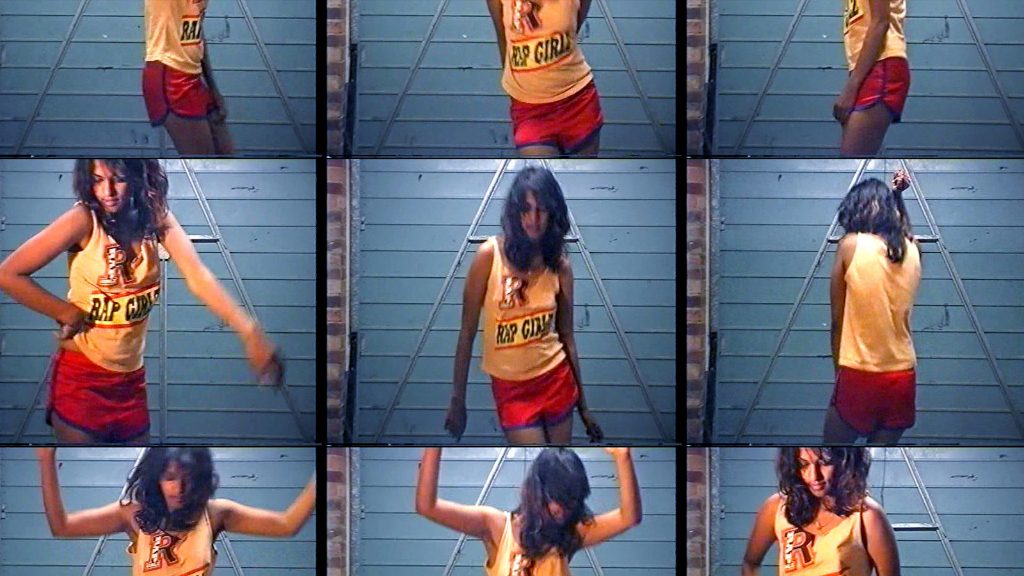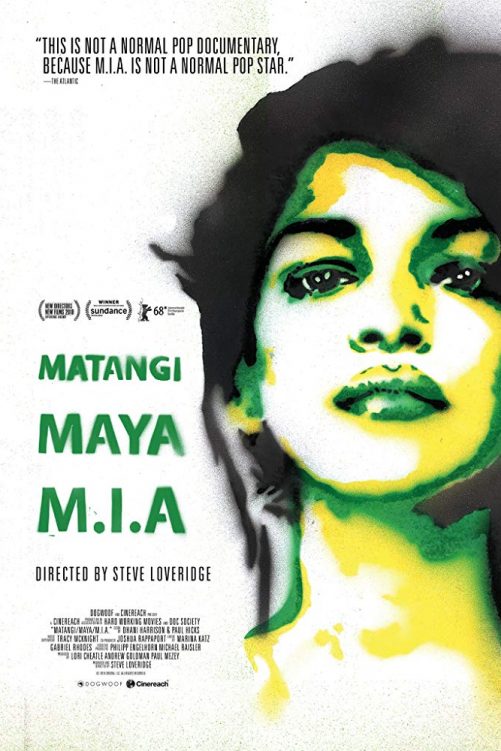Matangi/Maya/M.I.A.

In 1975, Arul Pragasam and his family travelled from Hounslow, London to the Sri Lankan city of Jaffna, a hotbed for political activism and revolutionary independent movements, to fight the Tamil cause in the Sri Lankan Civil War. A rebel and founding member of the Eelam Revolutionary Organisation of Students, Pragasam remained in the country until the turn of the millennium, whilst his wife and children – including ten-year-old daughter Mathangi “Maya” – travelled back to the United Kingdom in order to live a safer life following a displaced upbringing hiding from the Sri Lankan army. It is from these early years that Maya draws her muse in her meteoric rise to fame from refugee to unanimous rap artist M.I.A., starting out as a mere artistic filmmaker and growing into one of the most controversial political artists modern music culture has ever witnessed. “I will show you my story,” she claims – and she certainly does.
Feeding off home footage of her childhood, the titular musician seizes the opportunity to work with director Steve Loveridge in this attempt to clarify the core political components of her identity that have so evidently inspired her work. There is no doubt that M.I.A. was certainly one of the trickiest subjects – in context and in person – for Loveridge to revolve his debut feature around, but despite her brattish behaviour, the artist’s message is clearly purveyed in this documentary, whether the media wish to acknowledge it or not. Creating not only a political message for the audience, but an empathetic journey in which her moral standings are explained and nurtured through captured images of her youth, the film takes us on an exploration of her worn, torn preadolescence, displaying her rawest moments in a very personal model.
Darting between the more present day and the early 2000s, we see M.I.A. pursue her dreams of becoming a documentary filmmaker by travelling back to Sri Lanka to conduct an in-depth study into societal life. This journey, accompanied by her experiences travelling on tour with 90s alternative rock band Elastica, gave Maya her true direction in life, inspiring the young artist to create her own music carrying a more powerful, ground-shaking message. With all of this, it must be noted that Matangi/Maya/M.I.A. is not particularly a biopic, but more an explanation of how the subject’s music and heritage has fallen to the mercy of the vultures she perceives the media to be, who weakly pick away at the events happening in her native country, adding blusher to the horrifying oppression felt by Sri Lankan Tamils.
Such a complex, time-jumping narrative does lead to some confusion as to when and where in her timeline the audience are situated, and the stark contents of the documentary begin to feel like a piece of propaganda as ithe film progresses towards an ultimate climax that never really comes. Yet this is the poignant message of the picture and of M.I.A.’s career thus far. The end is not in sight, justice is not being served, but as long as the performer continues to use her status and popularity to spread her political message via outlandish music videos and insightful (graphic) statements such as this documentary, there is still hope for the cause in whose name she so passionately campaigns.
Guy Lambert
Matangi/Maya/M.I.A. is released in select cinemas on 21st September 2018.
Watch the trailer for Matangi/Maya/M.I.A. here:
























Facebook
Twitter
Instagram
YouTube
RSS